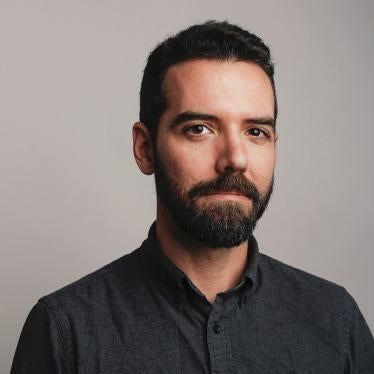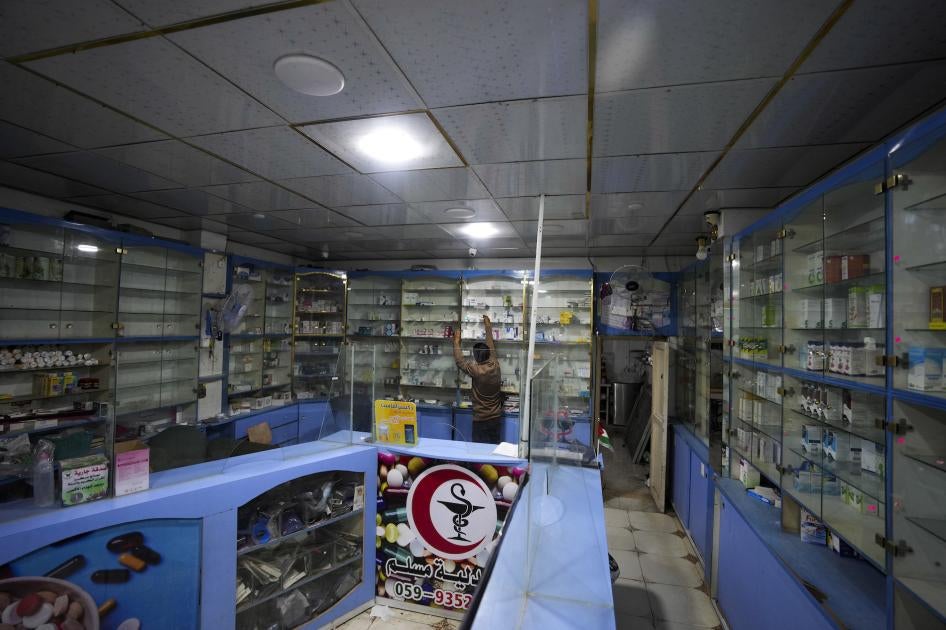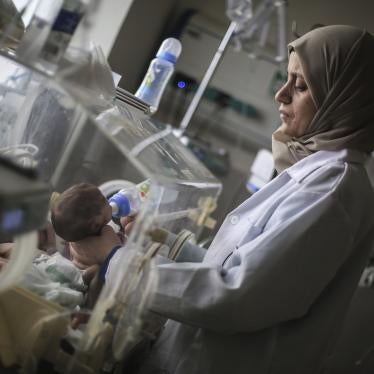Karim celebrated his 18th birthday this week.
His father fears it will be his last.
Karim, who lives in the Gaza Strip, has Type 1 diabetes; his body does not produce enough insulin, which regulates blood sugar. His medical insulin may run out next week and without it, he risks potentially life-threatening complications.
On October 9, an Israeli airstrike hit a mosque near Karim’s family home in al-Shati camp in northern Gaza, killing three people, his father Awni told Human Rights Watch. The family then moved south to the home of Awni’s wife’s family in Deir al-Balah, where they stayed for 10 days. Karim needed insulin, and a United Nations clinic advised Awni to try to find it further south in Rafah. The family moved to Awni’s uncle’s home there, where 34 people are crammed into four bedrooms. Awni found doses when he first arrived, but “there is nowhere to get insulin in Rafah now,” he said.
Karim, like the tens of thousands of other Gaza residents who rely on insulin to manage their diabetes, can no longer access it as a consequence of the Israeli government’s blockade of the strip.
Gaza faces an “acute shortage” of insulin, according to the World Health Organization. After the Hamas-led attacks on Israel on October 7, the number of trucks entering Gaza plummeted from 500 per day to none for weeks. Recently, around 100 trucks have entered daily, still far below what’s needed. In addition, the scarcity of test strips, potable water, and food make it harder for diabetics to manage their blood glucose.
Gaza’s healthcare system has collapsed and, according to diabetes specialist Dr. Mohammed Seyam, “a patient with type 1 diabetes could lose their life if they went into a diabetic ketoacidosis episode with no available beds in intensive care units.”
The brother-in-law of a Human Rights Watch staff member who works with the Haifa Association for Children with Diabetes, which previously provided pediatric insulin and blood glucose testing for 750 children, said: “I don’t have one Karim, I have 750 Karims from my association. If kids don’t get their insulin their lives are in danger.”
The blockade is preventing sufficient medicine from entering Gaza and disrupting the refrigeration needed for insulin. The blockade is collective punishment of the civilian population, a war crime. For people with diabetes, including children, it is also a sentence to needless suffering and possibly death.









